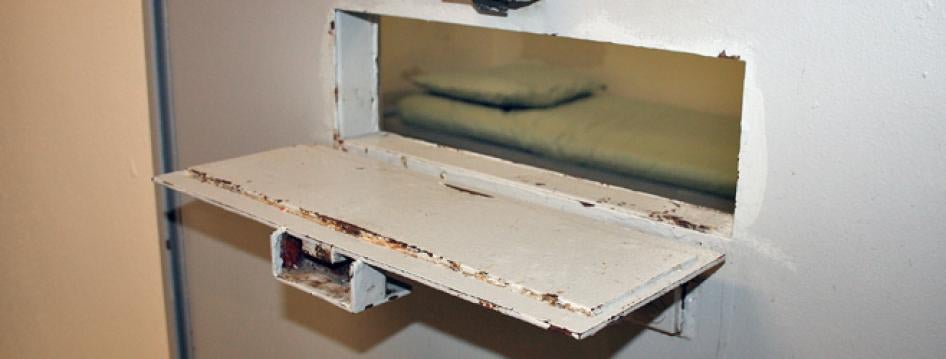In a report released last night, the United States Justice Department (DOJ) has called for a number of substantial reforms to the use of solitary confinement in the US, including banning solitary confinement for children. The report directs changes to the US Bureau of Prisons and also promotes “guiding principles” that should apply to other federal agencies – like the Department of Homeland Security – as well as state and local governments.
The report's call for an end to the use of solitary confinement for children – as we have recommended, as has the United Nations Committee Against Torture – is worthy of this morning's headlines. But the report goes beyond just looking at children and urges all jurisdictions to reconsider the use of solitary confinement for young adults aged 18 to 25, calling on correctional staff to be trained on young adult brain development and incorporate “developmentally responsive” policies for this population.
The report rightly dispenses with some of the semantics about what solitary confinement looks like and defines “restrictive housing” broadly: “removal from the general inmate population, whether voluntary or involuntary; placement in a locked room or cell, whether alone or with another inmate; and an inability to leave the room or cell for the vast majority of the day, typically 22 hours or more.”
The report recommends significant reductions in the use of disciplinary segregation, including a prohibition on solitary confinement as punishment for low-level offenses and a reduction in the maximum length of time in solitary allowed as punishment for more serious offenses. Currently, for a second “moderate” level offense, the maximum penalty is 180 days in solitary. DOJ now calls for a maximum of 15 days. (While this is a major improvement, it pales in comparison to the United Nations' recently adopted Mandela Rules, which call for a 15 day maximum for any reason.)
Human Rights Watch has been critical of the Bureau of Prison’s overuse and misuse of solitary for many years, and we have advocated for many of the reforms included in the DOJ report. We recognize that implementation of some of the recommendations may be more difficult than others. Some may need to be addressed through collective bargaining agreements with correctional unions, and funding for some of the more important recommendations – like creating and staffing dedicated mental health units across the US to keep people with intellectual and psychosocial disabilities out of solitary – will require committed Congressional support.
But of this there is little doubt: today's announcement is part of a sea change happening in the US regarding its harmful use of solitary confinement. Prolonged and indefinite solitary in the US becomes rarer as of today.








